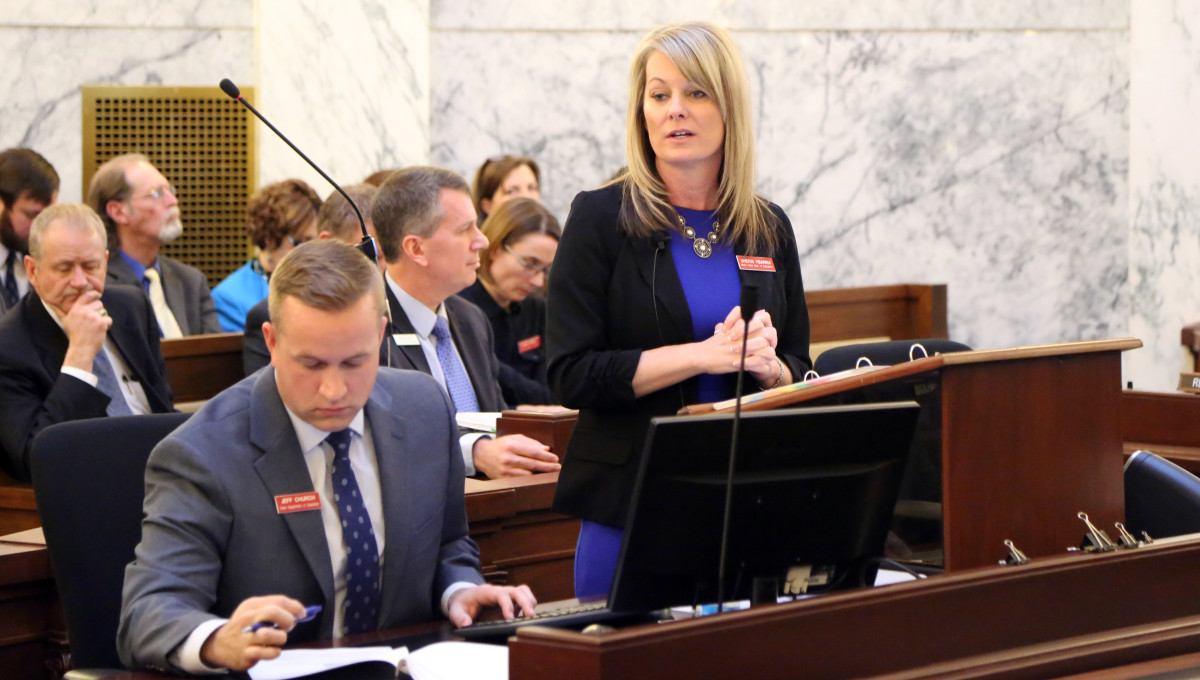If the 2017 Legislature wants to add another $100 million or so to the K-12 budget, it looks like the money will be there.
On Tuesday morning, legislative budget-writers started looking over some of the numbers that will define the session that will begin in early January. And while their counterparts in other states are facing the prospect of spending cuts, Idaho lawmakers could have ample tax revenues on hand.
“Idaho is a little bit of an island right now,” Cathy Holland-Smith, division manager of the Legislative Services Office, told the Joint Finance-Appropriations Committee.
JFAC, the Legislature’s powerful budget-writing committee, is meeting in Boise this week for three days of tours and presentations. Lawmakers started their work by hearing an overview about where the state stands, early in the 2016-17 budget year.
The state only has two months of numbers — from July and August, the first two months of the budget year. But tax collections are ahead of projections, and the state also has more carryover money than lawmakers forecast in March, at the end of the 2016 session.
While it’s still early in the budget year, Holland-Smith painted an optimistic picture for lawmakers: All told, they could begin writing the 2017-18 budget with a $118.1 million cushion. That means it would not be difficult to write a balanced budget for 2017-18, she said, even while funding requests from state agencies.

And that scenario includes the largest funding request of all: the K-12 budget. On Sept. 1, state superintendent Sherri Ybarra unveiled her 2017-18 budget request — a $105.6 million increase from 2016-17.
Lawmakers got a quick overview of some highlights in the $1.69 billion Ybarra budget:
- Funding the third year of the teacher salary career ladder, a $57.8 million increase.
- A $16.2 million increase in schools’ operational spending — which is money schools can use to cover anything from salaries and benefits to transportation and textbooks. If Ybarra gets her way, districts would receive $26,467 per classroom, up from $25,696.
- A $8.2 million line item to help school districts pay for classified workers — including highly paid positions such as IT support. For every state dollar the districts now get for classified salaries, districts have to come up with 61 cents on their own.
- An increased budget for the second year of the literacy initiative — $11.1 million, up from $9.1 million.
Budget-writers will have plenty of time to drill down to the details in the K-12 budget request. In late January, Ybarra will present her request to JFAC in detail.
Committee members only had a couple of questions Tuesday. Boise Democratic Rep. John Gannon wanted to know if a 3 percent boost in operational spending would cover rising insurance costs.
The answer wasn’t encouraging. The state doesn’t have district-by-district data on health insurance premiums — but for state agencies, premiums have been going up by 9 to 10 percent a year, LSO analyst Paul Headlee said.
Since Tuesday’s meeting was an introduction to the budget numbers, the proceedings had an informal air to them. While Ybarra’s budget presentation will likely attract an overflow crowd to JFAC’s Statehouse committee room, about 15 staffers and reporters attended Tuesday’s session. Ybarra was a no-show, but chief deputy superintendent Pete Koehler was in attendance.
Several JFAC members were absent as well — including retiring Sen. Roy Lacey, D-Pocatello; Sen. Sheryl Nuxoll, R-Cottonwood, defeated in the May 17 primary; and Sen. Jim Guthrie, R-Inkom. House vice chairman Marc Gibbs was also among the no-shows — but JFAC colleague Rick Youngblood showed off a smartphone photo of the Grace Republican harvesting potatoes.
JFAC House chair Maxine Bell, R-Jerome, had a message for her vice chair: “Marc, if you (can hear) the sound of my voice, bring potatoes.”
